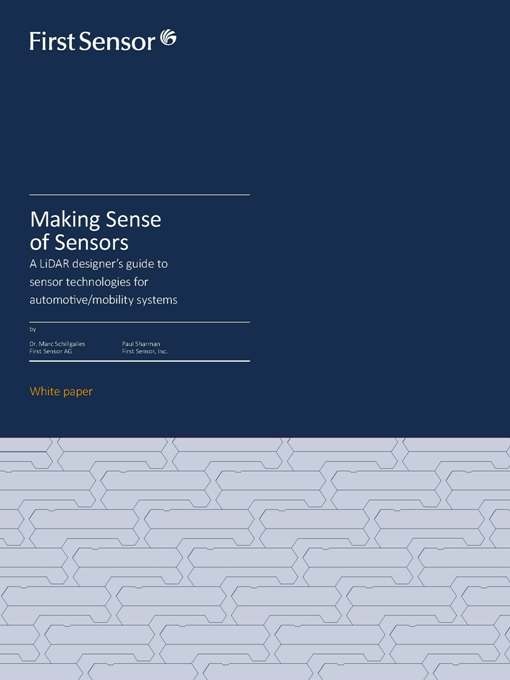Aug 16 2018
First Sensor, one of the world's leading suppliers of sensor systems, has published a new white paper: “Making sense of sensors: A LiDAR designer’s guide to sensor technologies for automotive/mobility systems.”

Light detection and ranging (LiDAR) scanners are critical components in prototype systems for autonomous vehicles, as well as in current systems for adaptive cruise control (ACC), collision avoidance systems, traffic sign recognition, blind spot detection, and lane departure warning. None of these LiDAR-based systems can function without a key component: their sensors — the “eyes” of the system.
As LiDAR and other mobility technologies continue to evolve, design engineers for original equipment manufacturers (OEMs) of mobility LiDAR systems are challenged with selecting between various sensor technologies. The task is critical as making the right sensor choices clearly mark the path ahead.
The new white paper serves as a guide for systems designers making these critical decisions. The paper provides a background on mobility LiDAR system technology, a discussion of the vital requisites involved in selecting the best sensor technology, an examination of the advantages and drawbacks of each of the leading options, and an overview of what's required when evaluating the right provider partner.
“Making sense of sensors: A LiDAR designer’s guide to sensor technologies for automotive/mobility systems,” is available immediately for download at http://first-sensor.us/lidar.html..